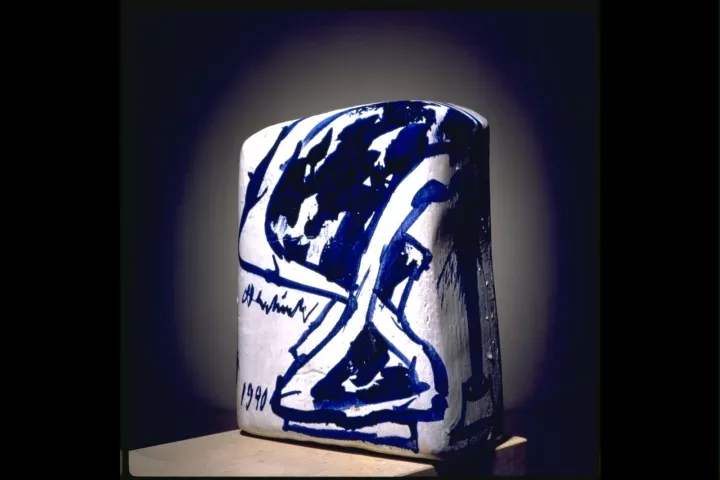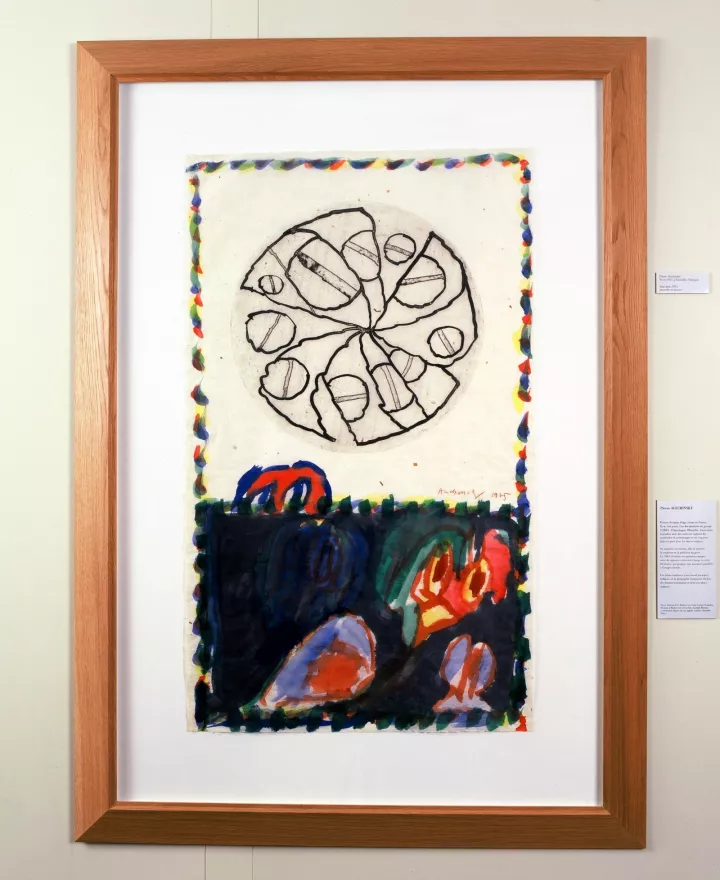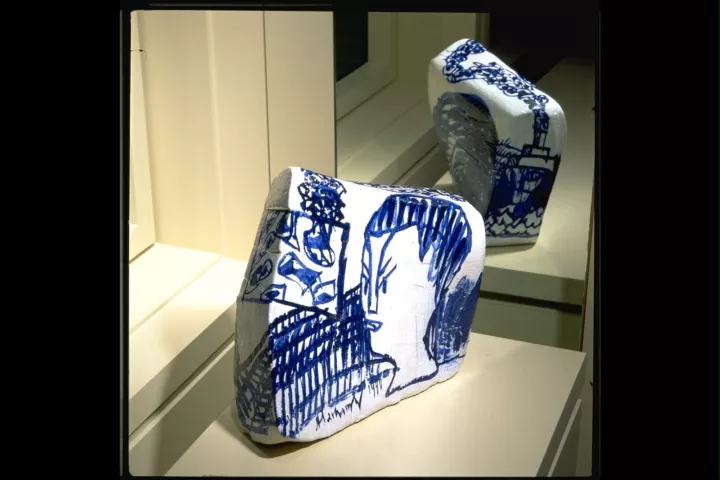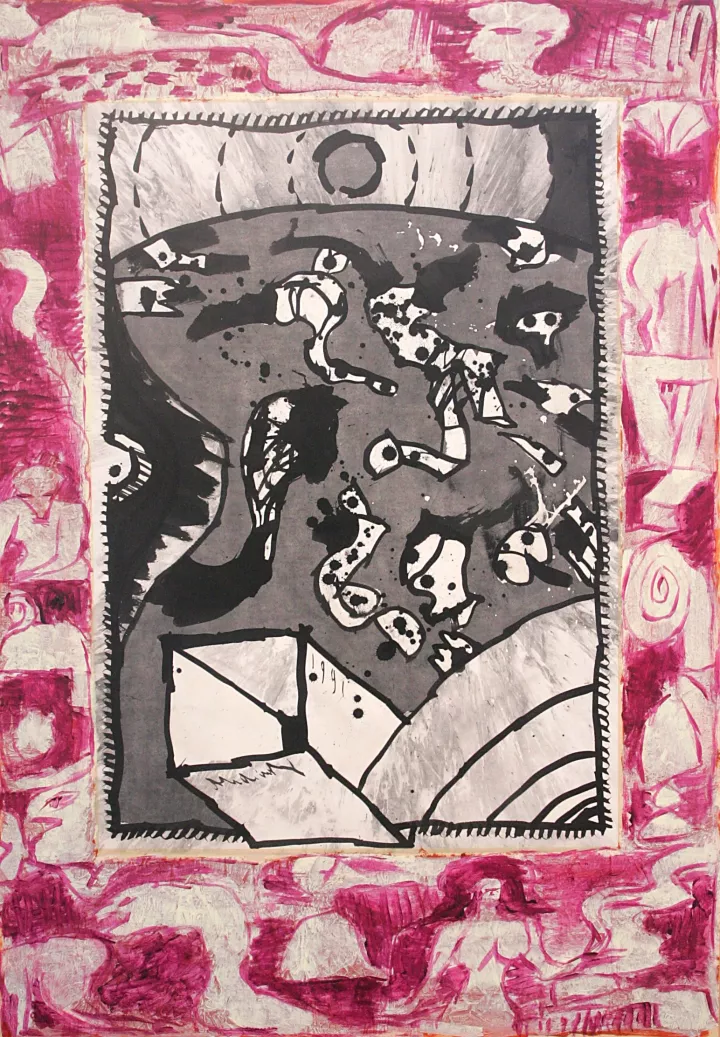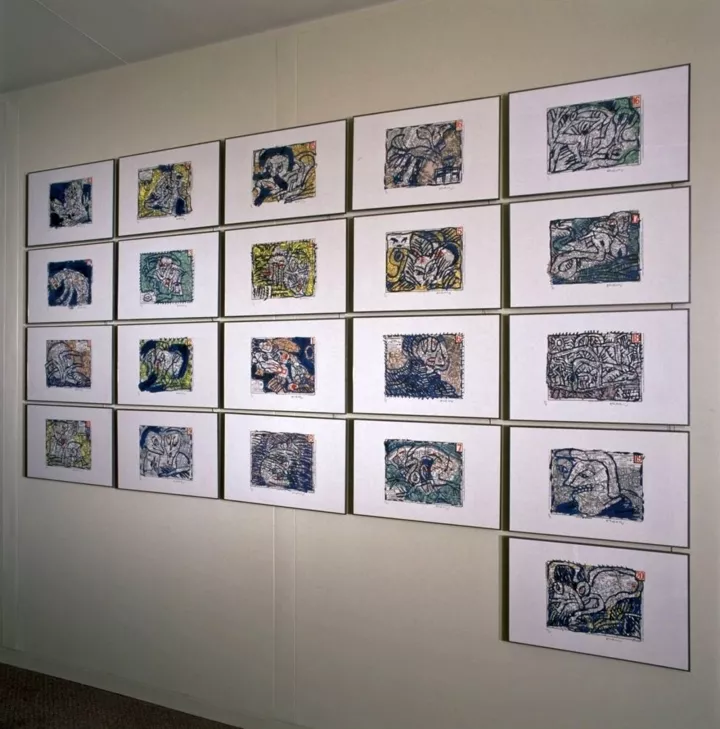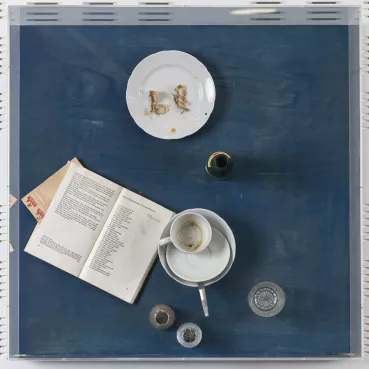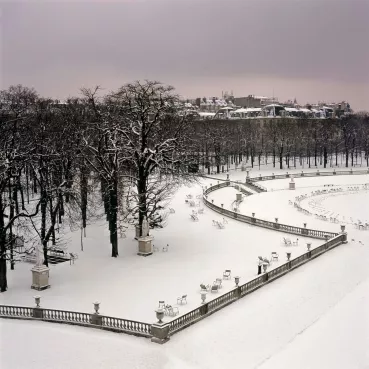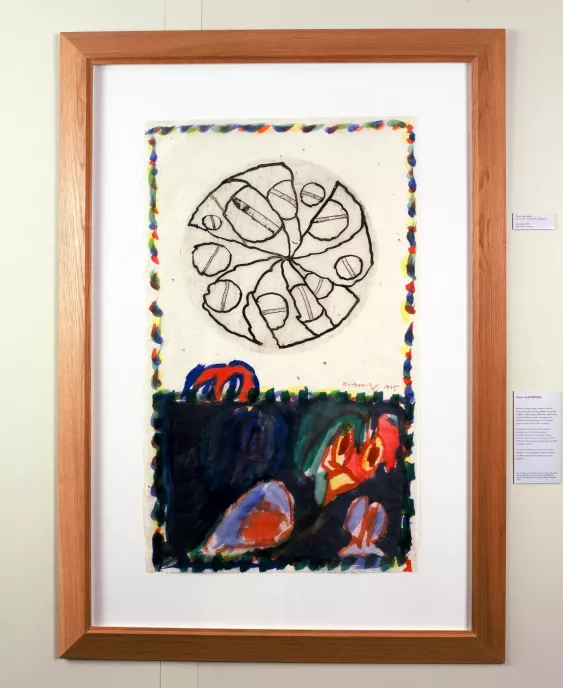
Zoom
Untitled
1975
Pierre ALECHINSKY
Works on paper
98 x 58 cm
Watercolour on engraving
The material used is fluid, creating a light, supple but precise gesture. But Alechinsky admits to feeling a certain anxiety faced with a blank sheet of paper, which is why he often prefers to use pre-printed paper. The fragments of stories and memories contained in these pages become the source of inspiration allowing him to create an imaginary world around pockets of reality.
In 1965, in Central Park, he produced his first acrylic painting with “remarks in the margins”. The margin has since become a recurrent motif in his works. In this revival of medieval illumination, the central subject is surrounded by a series of vignettes which thus offer spectators a parallel narrative.
The material used is fluid, creating a light, supple but precise gesture. But Alechinsky admits to feeling a certain anxiety faced with a blank sheet of paper, which is why he often prefers to use pre-printed paper. The fragments of stories and memories contained in these pages become the source of inspiration allowing him to create an imaginary world around pockets of reality.
In 1965, in Central Park, he produced his first acrylic painting with “remarks in the margins”. The margin has since become a recurrent motif in his works. In this revival of medieval illumination, the central subject is surrounded by a series of vignettes which thus offer spectators a parallel narrative.
Pierre ALECHINSKY
Belgium
Born in 1927
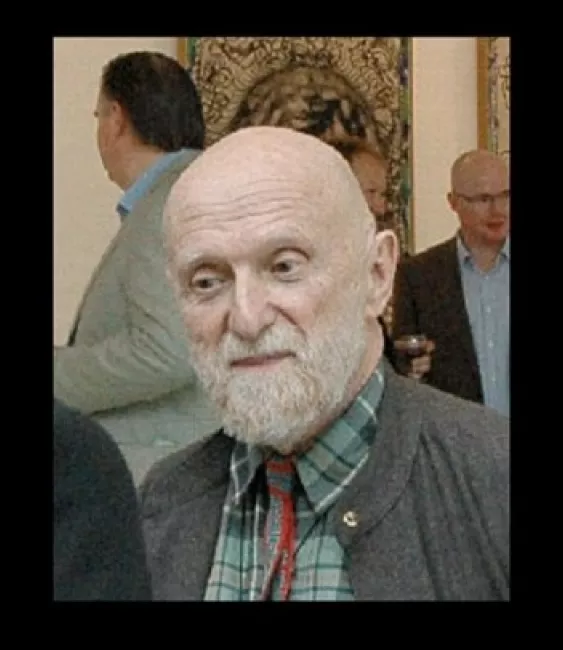
Belgian, now living in France.
As a young artist, Alechinsky was a member of the COBRA group (Copenhagen, Brussels and Amsterdam).
The paintings he produced at that time depict a multitude of characters. They already demonstrate his taste for sarcastic names for his work.
In the 1980s he began creating small sculptures made of clay and ceramic, and worked in particular with masses of earth, as in Exit presented here.
Since the early stages of his career as a member of the breakaway CoBrA group in 1949, Alechinsky has retained his lifelong desire and need to wander off the beaten track. Over the past fifty years, his oeuvre and instantly recognizable style—a graphic synthesis of Surrealism, Expressionism and Japanese calligraphy, with a hint of Action Painting—have earned him international renown. Venturing beyond the schism between figuration and abstraction, he has developed a singular visual
language based on ironic and enigmatic forms. Alechinsky is a draughtsman. He draws with his left hand. As a left-handed person once obliged to write with his right hand, he draws words, volcanoes and terrifying, nightmarish, polymorphous creatures; he draws on pieces of orange peel. Drawing is the art of asking questions, to paraphrase the artist.
Using the technique of ‘automatic writing’ inherited from the surrealists, he traces figures and patterns characteristic of a dream-like world, providing meaning and substance to the rippled surface of his works.
As a young artist, Alechinsky was a member of the COBRA group (Copenhagen, Brussels and Amsterdam).
The paintings he produced at that time depict a multitude of characters. They already demonstrate his taste for sarcastic names for his work.
In the 1980s he began creating small sculptures made of clay and ceramic, and worked in particular with masses of earth, as in Exit presented here.
Since the early stages of his career as a member of the breakaway CoBrA group in 1949, Alechinsky has retained his lifelong desire and need to wander off the beaten track. Over the past fifty years, his oeuvre and instantly recognizable style—a graphic synthesis of Surrealism, Expressionism and Japanese calligraphy, with a hint of Action Painting—have earned him international renown. Venturing beyond the schism between figuration and abstraction, he has developed a singular visual
language based on ironic and enigmatic forms. Alechinsky is a draughtsman. He draws with his left hand. As a left-handed person once obliged to write with his right hand, he draws words, volcanoes and terrifying, nightmarish, polymorphous creatures; he draws on pieces of orange peel. Drawing is the art of asking questions, to paraphrase the artist.
Using the technique of ‘automatic writing’ inherited from the surrealists, he traces figures and patterns characteristic of a dream-like world, providing meaning and substance to the rippled surface of his works.

Visit the Collection
Book a visitThe visit of the Collection is open to you! Come alone, in a group or on a school outing !
Reservation is mandatory in order to offer you a guided tour, at La Défense or by videoconference.
